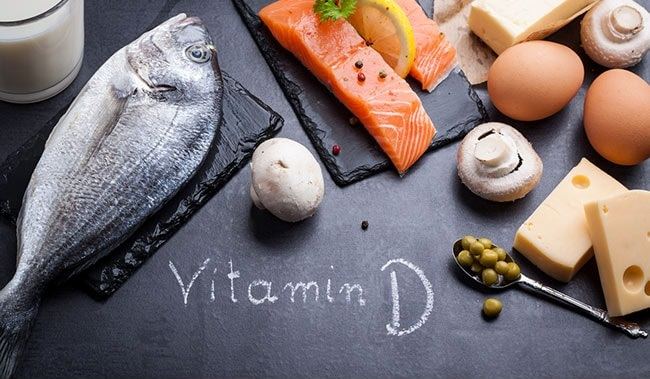Lowering cholesterol naturally through diet is a highly effective and sustainable approach to improving heart health. In this article, we will explore the three best foods that have been scientifically proven to reduce cholesterol levels and promote overall cardiovascular wellness.
High cholesterol is a significant risk factor for cardiovascular diseases, including heart attacks and strokes. Managing cholesterol levels through lifestyle changes, particularly diet, is an essential strategy for reducing this risk. Certain foods are particularly effective in lowering cholesterol due to their nutrient composition and health benefits. Here, we delve into the top three foods known for their cholesterol-lowering properties: oats, fatty fish, and nuts.
1. Oats
Nutritional Profile
Oats are a whole grain powerhouse packed with essential nutrients, including dietary fiber, vitamins, minerals, and antioxidants. They are particularly high in soluble fiber, specifically beta-glucan, which is known for its cholesterol-lowering effects.
SEE ALSO: Who Is Most Likely to Develop Hypercholesterolemia?
Mechanism of Action
The primary mechanism through which oats lower cholesterol is their high beta-glucan content. Beta-glucan forms a gel-like substance in the digestive tract that binds to cholesterol-rich bile acids. This process prevents the reabsorption of cholesterol into the bloodstream, leading to its excretion from the body. Additionally, oats help reduce the absorption of dietary cholesterol from other foods.
Scientific Evidence
Numerous studies have confirmed the cholesterol-lowering benefits of oats. A meta-analysis published in the American Journal of Clinical Nutrition found that consuming 3 grams of beta-glucan per day from oats can lower total cholesterol by 5-10% and LDL cholesterol (the “bad” cholesterol) by 5-7%. Another study in the Journal of Nutrition reported that regular consumption of oats significantly reduced LDL cholesterol levels in hypercholesterolemic individuals.
Practical Tips for Incorporation
Incorporating oats into your daily diet is simple and versatile. Here are some practical tips:
Breakfast: Start your day with a bowl of oatmeal topped with fruits, nuts, and seeds.
Smoothies: Add a spoonful of oat bran or rolled oats to your morning smoothie for an extra fiber boost.
Baking: Use oat flour or whole oats in baking recipes, such as muffins, cookies, and bread.
Snacks: Enjoy oat-based snacks like granola bars or homemade energy bites.
2. Fatty Fish
Nutritional Profile
Fatty fish, such as salmon, mackerel, sardines, and trout, are rich in omega-3 fatty acids, high-quality protein, vitamins D and B12, and essential minerals. Omega-3 fatty acids are particularly noted for their heart-protective properties.
Mechanism of Action
The omega-3 fatty acids in fatty fish, particularly eicosapentaenoic acid (EPA) and docosahexaenoic acid (DHA), play a crucial role in lowering cholesterol. They reduce the production of triglycerides in the liver, increase the rate of triglyceride clearance from the blood, and improve the balance of HDL (the “good” cholesterol) to LDL cholesterol.
Omega-3s also possess anti-inflammatory properties, which contribute to overall cardiovascular health.
Scientific Evidence
Extensive research supports the benefits of fatty fish for lowering cholesterol and improving heart health. A study published in Circulation demonstrated that consuming fatty fish twice a week significantly lowered triglyceride levels and increased HDL cholesterol.
Another study in the Journal of the American Medical Association (JAMA) found that regular consumption of fatty fish reduced the risk of coronary heart disease and sudden cardiac death.
Practical Tips for Incorporation
Including fatty fish in your diet can be both delicious and easy. Here are some tips:
Grilled or Baked: Grill or bake salmon or mackerel with a squeeze of lemon and a sprinkle of herbs for a heart-healthy meal.
Salads: Add chunks of cooked salmon or sardines to salads for a protein and omega-3 boost.
Tacos: Make fish tacos using grilled or broiled fish, topped with fresh vegetables and a light yogurt sauce.
Canned Options: Keep canned sardines or salmon on hand for quick additions to sandwiches, salads, or pasta dishes.
3. Nuts
Nutritional Profile
Nuts are nutrient-dense foods rich in healthy fats, protein, fiber, vitamins, minerals, and antioxidants. Common cholesterol-lowering nuts include almonds, walnuts, pistachios, and pecans.
Mechanism of Action
Nuts are high in monounsaturated and polyunsaturated fats, which help lower LDL cholesterol and total cholesterol levels while maintaining or increasing HDL cholesterol levels. They also contain plant sterols, which inhibit the absorption of dietary cholesterol in the intestines. The fiber and antioxidants in nuts further contribute to their heart-protective effects.
Scientific Evidence
Research consistently shows that nut consumption is associated with improved cholesterol levels and reduced cardiovascular risk. A study in the Archives of Internal Medicine found that individuals who consumed a handful of nuts daily experienced significant reductions in LDL cholesterol and total cholesterol. Another study in the British Journal of Nutrition reported that a diet enriched with walnuts improved endothelial function and reduced inflammation markers, both of which are crucial for heart health.
Practical Tips for Incorporation
Incorporating nuts into your diet is simple and enjoyable. Here are some ideas:
Snacks: Enjoy a handful of mixed nuts as a nutritious snack.
Breakfast: Sprinkle chopped nuts on your cereal, yogurt, or smoothie bowls.
Salads: Add nuts to salads for a crunchy texture and extra nutrients.
Baking: Include nuts in baking recipes, such as bread, muffins, and cookies.
Nut Butter: Use natural nut butter (like almond or walnut butter) on toast or as a dip for fruits and vegetables.
Conclusion
Incorporating oats, fatty fish, and nuts into your diet can significantly lower cholesterol levels and improve overall heart health. These foods are rich in essential nutrients and have specific properties that target cholesterol reduction through various mechanisms. By making these foods a regular part of your meals, you can take proactive steps towards maintaining healthy cholesterol levels and reducing your risk of cardiovascular diseases.

